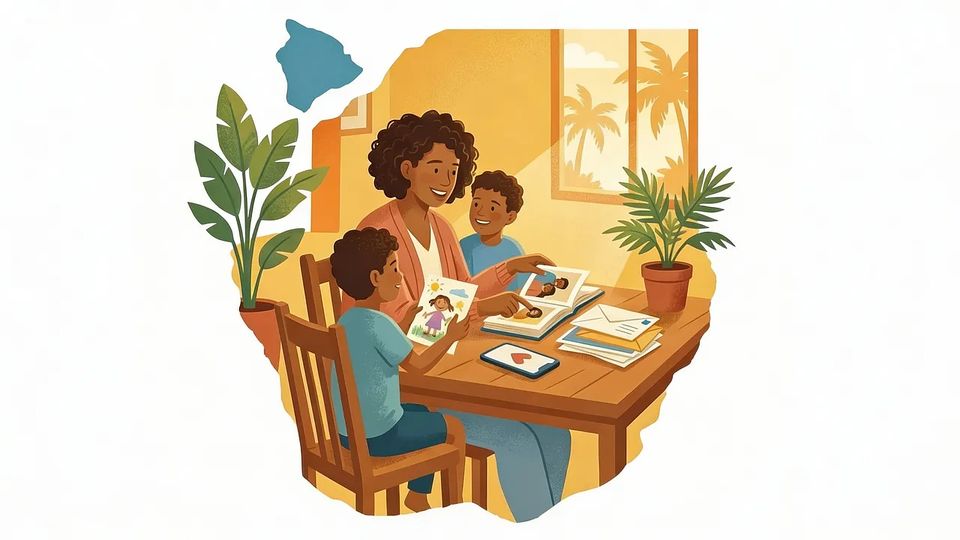
Hawaii
Staying connected with someone incarcerated in Hawaii comes down to a few basics: phone calls, money deposits, visits, and mail. Here you'll find the Hawaii Department of Corrections and Rehabilitation details families use most, plus the fastest ways to confirm schedules and contact info before you spend time or money.
Phone & Messaging
Hawaii's Department of Corrections and Rehabilitation uses Global Tel Link (GTL) for inmate phone calls. This covers local, inter-island, mainland, and...
Read guideSending Money
Make sure you’re an approved visitor. Hawaii limits trust-fund electronic deposits through ConnectNetwork to approved visitors.. Create a ConnectNetwork...
Read guideVisitation
Visiting schedules vary by facility and sometimes by housing area. At Oahu Community Correctional Center (OCCC), visitation runs seven days a week...
Read guideFacility Info
For a central point of contact, the Hawaii Department of Corrections and Rehabilitation main office is at 1177 Alakea Street, Honolulu, HI 96813. Phone:...
Read guideFacilities, programs, and services families should know about
Hawaii facilities operate differently depending on location and custody level. Halawa Correctional Facility, for example, is actually two separate...
Read guideMail & Photos
Mail and publication rules are policy-driven, so check the Department's policies before sending anything beyond a basic letter. KCCC directs readers to PSD...
Read guideFind an Inmate
Search for a loved one and send messages and photos in minutes.

Common Questions
Q
Can I deposit money into an inmate account if I am not an approved visitor?
No. Hawaii’s policy for GTL/ViaPath ConnectNetwork electronic deposits states the depositor must be an approved visitor to deposit money into an inmate’s trust fund account.
Q
How long does it take for an online deposit to be available in the inmate's account?
ConnectNetwork deposits and payments are transmitted to the facility within 1 to 2 business days. Availability of funds is subject to PSD policies, so timing can still depend on how the facility posts funds to the account.
Q
Can inmates call cell phones and what payment methods can I use for calls?
Yes. Hawaii’s GTL system allows calls to landlines and wireless cell phones, and payment options include collect, prepaid, and debit. If you use prepaid, GTL says AdvancePay accounts can be funded with credit or debit cards, cash deposited at Western Union, checks, or money orders.
Q
How do I schedule a visit at Oahu Community Correctional Center (OCCC)?
Call (808) 832-1633 between 0900 and 1200 hours, Monday through Friday, to schedule. OCCC’s published visiting hours are Monday through Sunday from 7:30 AM to 12:30 PM, excluding state holidays.
